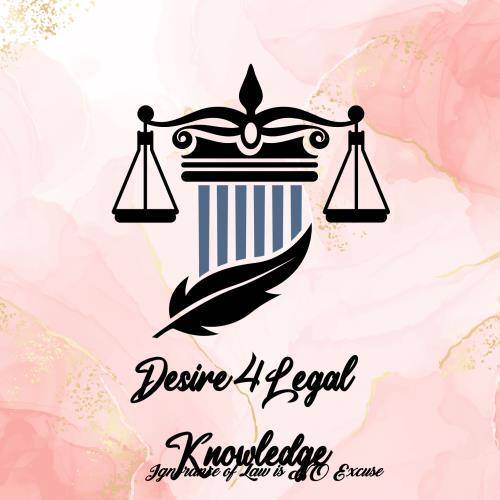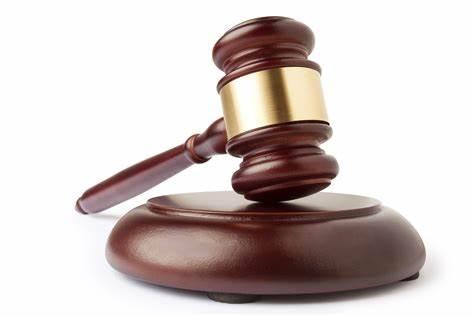Legal Professions: Complete Treasure on the 7 Forms
Table of Contents
Introduction
The legal professions is a vast and complex field, with countless specializations and roles to consider. For those who are just starting out on their journey into law, or for those who are looking to expand their knowledge of the field, having a comprehensive guide to the many forms of barristers is essential. With so many different professions and areas of practice, it can be difficult to know where to begin.
That’s why we have compiled a complete treasure trove of information on the countless forms of legal professions, covering everything from criminal law to corporate law, family law to intellectual property law, and much more. Whether you are a law student, a legal professional, or simply someone who is interested in the law, this guide is an invaluable resource that will help you navigate the complex world of legal practice with confidence.
Forms of Legal Professions
There are several types of legal professions who play different roles in the legal system. Here are some of the most common types of them and their roles:
- Lawyers: Lawyers are professionals who provide advice and represent clients in legal matters. They are trained in the law and have a deep understanding of principles, procedures, and regulations of law. They may specialize in different areas of law, such as criminal law, civil law, corporate law, intellectual property law, or family law.
- Judges: Judges are professionals who preside over proceedings and make decisions based on the evidence presented in court and the applicable law. They are responsible for interpreting and applying the law, ensuring fair trials, and issuing verdicts or judgments to provide social justice.
- Paralegals: Paralegals are professionals who assist lawyers in their work. They perform tasks such as conducting legal research, drafting documents, organizing case files, and communicating with clients and other parties involved in proceedings.
- Legal Assistants: Legal assistants, also known as legal secretaries, provide administrative support to lawyers and law firms. They handle tasks such as scheduling appointments, managing correspondence, and preparing documents.
- Court Reporters: Court reporters are professionals who create transcripts of proceedings. They use specialized equipment to record spoken words, gestures, and other sounds during court hearings, depositions, and other events.
- Mediators: Mediators are professionals who help parties resolve disputes through negotiation and dialogue. They are trained in conflict resolution and help parties reach mutually beneficial agreements without going to court.
- Legal Researchers: Legal researchers are professionals who conduct research on different topics and provide information and analysis to lawyers, judges, and other professionals. They help identify precedents, analyze different issues, and provide guidance on legal strategies.
Lawyers


Lawyers are professionals who are trained in the law and authorized to provide advice and representation to clients. They play a critical role in society, helping individuals and businesses navigate the complexities of the legal system and ensuring that justice is served.
Lawyers may specialize in a wide range of areas, including criminal law, family law, corporate law, intellectual property law, civil law including contract law, and many others. They may work in private practice, for government agencies, or for non-profit organizations, and their duties may include researching legal issues, drafting documents, negotiating settlements, and representing clients in court. Overall, lawyers are essential professionals to ensuring that the law is upheld and that the rights of individuals and businesses are protected.
Judges


Judges are the professionals who are responsible for interpreting and applying the law in a court of law. They play a critical role in the justice system, ensuring that disputes are resolved fairly and impartially. Judges may preside over criminal or civil cases, and their duties may include overseeing trials, ruling on evidentiary issues, interpreting the law, and rendering judgments.
They may also be responsible for sentencing defendants who are found guilty in criminal cases. Judges are typically appointed or elected to their positions, and they must have extensive experience and knowledge of the law. Overall, judges are essential to ensuring that the justice system operates fairly and effectively, and that the rights of individuals and society are protected.
Paralegals
Paralegals are professionals who work under the supervision of lawyers to provide support in various matters. They perform a wide range of tasks, including conducting legal research, drafting documents, organizing case files, and assisting with client communication. They may be specialized in a particular area of law, such as family law, real estate law, or corporate law.
They may work in law firms, government agencies, corporate departments, or non-profit organizations. They are typically required to have a formal education in paralegal studies or a related field, and they must have a strong understanding of legal terminology and procedures. Overall, they are essential to the efficient operation of the legal system, and they play a critical role in supporting lawyers and helping to ensure that all the matters are handled effectively and efficiently.
Legal Assistants
Legal assistants are professionals who provide administrative support to lawyers and other professionals. They perform a wide range of tasks, including scheduling appointments, organizing files, preparing required documents, and communicating with clients. They may also conduct legal research and assist with drafting pleadings and contracts.
They work in law firms, government agencies, corporate departments, or non-profit organizations. They are typically required to have a formal education in legal studies or a related field, and they must have a strong understanding of legal terminology and procedures. Overall, they play a critical role in supporting professionals and ensuring that all the matters are handled efficiently and effectively.
Court Reporters
Court reporters are professionals who are responsible for creating a verbatim record of proceedings of court. They use specialized equipment to transcribe spoken words into written form, and they must be skilled in shorthand or stenography. Court reporters typically work in courtrooms, but they may also work in law firms.
They are responsible for producing accurate and complete transcripts of court proceedings, which may be used as evidence in the proceedings. Court reporters must have excellent listening and writing skills, as well as strong attention to detail. They may be required to undergo specialized training and certification in order to work in this field. Overall, court reporters play a critical role in ensuring that proceedings are accurately recorded and documented for future reference.
Mediators
Mediators are trained professionals who help individuals and groups resolve disputes outside of the courtroom. They work to facilitate communication and negotiation between parties who are in conflict, with the goal of reaching a mutually agreeable resolution. Mediators do not make decisions or impose solutions; rather, they help the parties involved to identify and articulate their interests and concerns, and work together to find a solution that meets everyone’s needs. Mediators may work in a variety of settings, including court systems, community organizations, or private practice.
They are typically required to have specialized training in mediation and conflict resolution, as well as strong communication and problem-solving skills. Overall, mediators play an important role in helping individuals and groups resolve conflicts in a peaceful and constructive manner.
Legal Researchers


Legal researchers are professionals who are responsible for conducting in-depth research on varoius topics and issues. They work in law firms, government agencies, or academic institutions, and their research may be used to support the proceedings, inform policy decisions, or contribute to scholarship. They must have strong analytical and critical thinking skills, as well as a deep understanding of legal concepts and principles.
They may use a variety of resources to conduct their research, including databases, academic journals, and government reports. They may also be responsible for analyzing and synthesizing complex information and presenting their findings to other professionals or other stakeholders. Overall, they play a critical role in advancing the knowledge and supporting the work of the professionals.
Conclusion
In conclusion, the legal professions encompass a vast array of roles and responsibilities, each with its own unique contribution to the justice system. From judges and lawyers to paralegals and court reporters, these professions are essential to ensuring that the rule of law is upheld, and justice is served.
Whether one chooses to pursue a career as a these professionals or simply seeks to understand the intricacies of the legal system, a comprehensive understanding of the various roles and responsibilities within the profession is essential.
Furthermore, as these professions continue to evolve and adapt to changing societal needs and technological advancements, the demand for skilled professionals will only continue to grow. Whether working in traditional roles or in emerging fields such as technology and alternative dispute resolution, professionals have the opportunity to make a meaningful impact on society and contribute to the ongoing development of the justice system. These professions are an integral part of society.
As such, a deep understanding of the countless forms of these professions is crucial for anyone seeking to navigate the complex and dynamic world of the law.
FAQs
What are the duties and responsibilities of a paralegal?
Paralegals play a crucial role in the legal profession, supporting attorneys and legal teams. Their duties and responsibilities typically include conducting legal research, drafting legal documents, assisting in case preparation, organizing and managing files, interviewing clients and witnesses, and providing general administrative support. They work under the supervision of attorneys and contribute to the efficient functioning of legal matters.
What are the responsibilities of a legal analyst or legal consultant?
The responsibilities of a legal analyst or legal consultant can vary depending on the specific role and context. However, some common responsibilities may include conducting legal research, analyzing laws and regulations, interpreting legal documents, providing advice and guidance on legal matters, assisting in the development of legal strategies, and preparing reports and recommendations for clients or organizations. Legal analysts or consultants often work closely with attorneys and legal teams to provide valuable insights and support in navigating complex legal issues.

